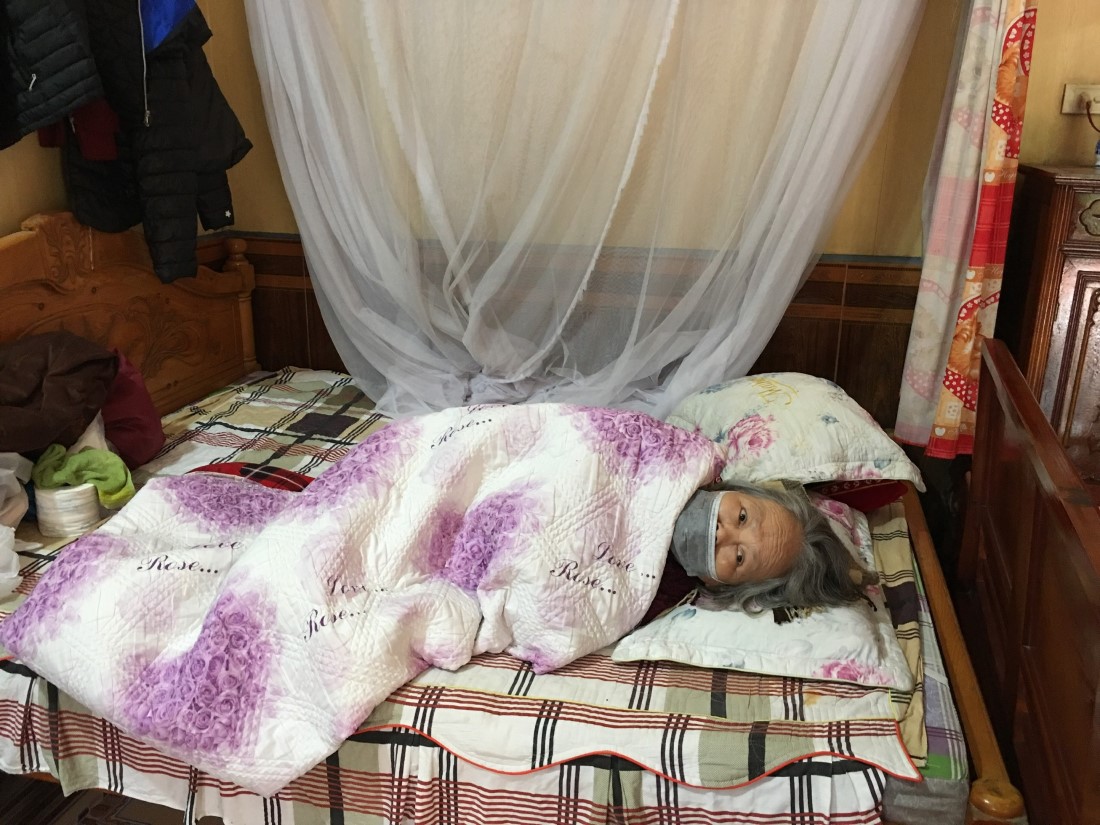Anthropological image wins best scientific photo of the year award
The Danish National Research Foundation's award for best scientific photo in 2023 tells the story of a diabetes epidemic that has gone global. The photo was taken by Dung Vũ, who works in Vietnam on the VALID project, which is anchored at the Department of Anthropology.

At first glance, the photo shows Vietnamese rice farmer Bà Son, whose right leg had been amputated a few days earlier due to complications from diabetes. But the portrait also tells the story of the challenges posed by the near-epidemic spread of type 2 diabetes globally.
It is this duality that made the photo the winner of the Danish National Research Foundation's award for the best scientific photo of the year in 2023. With the award, the foundation wants to reward photos that simultaneously manage to evoke emotions, have aesthetic quality, and create a visual entry point to research results.
Or, as the jury describes its choice for this year's winning photo:
“The image creates compassion and indignation about global inequality in relation to medical treatment, which privileged people consider natural – but which many do not have access to – with debilitating consequences. The picture has a fine aesthetic quality in the tradition of social documentary photography. The rug symbolizes caretaking and helps to establish materiality in the motif. The mask is a time marker.”
The photo was taken by Dung Vũ, a doctor involved in the VALID project in the North Vietnamese province of Thái Bình. Here, local and Danish researchers are collaborating to strengthen the health care of patients with diabetes 2 by focusing on the informal care that takes place in the family and the local community.
Medical knowledge cannot stand alone
The VALID project is led by Professor Tine Gammeltoft at the Department of Anthropology, who in an interview on the Danish National Research Foundation's website welcomes that the award raises more awareness of the increasing challenges that chronic diseases create globally.
“If you live with diabetes in a low- or middle-income country, you are far more likely to not get the right treatment and end up with serious complications and amputations, as happened to Bà Son.”
She also points out that anthropological knowledge is an important complement to medical knowledge, which cannot stand alone when the patient's life situation makes it socially or emotionally impossible to follow medical recommendations:
“Bà Son is a good example of the tendencies we have seen in our ethnographic research: She wants to be discreet with her illness, but in this way she easily – indirectly – aggravates it.”
In response, the project has developed a number of new initiatives in Vietnam to help people live better with their diabetes and make it less stigmatising. For example, the team has set up diabetes classes and clubs for health workers and patients in villages.
--
Read more about the award-winning photo and the full interview with Tine Gammeltoft at the Danish National Research Foundation.
Read more about the VALID project 'Living Together with Chronic Disease: Informal Support for Diabetes Management in Vietnam', which is supported by the Danish Ministry of Foreign Affairs.
